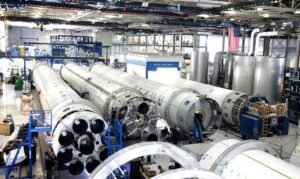Deep Learning Kaggle
Deep Learning is a subset of machine learning that focuses on neural networks with multiple layers, enabling the learning of complex patterns and features from data. Deep Learning has gained immense popularity in recent years due to its ability to solve tasks such as image recognition, natural language processing, and speech recognition with remarkable accuracy. Kaggle, a popular online platform for data science competitions, provides an ideal environment for aspiring data scientists to apply their deep learning skills to real-world problems and learn from the global community of data enthusiasts.
Key Takeaways
- Deep Learning is a subset of machine learning focusing on neural networks with multiple layers.
- Kaggle provides a platform for data scientists to apply their deep learning skills and learn from others.
- Deep Learning excels in image recognition, natural language processing, and speech recognition tasks.
Introduction to Deep Learning on Kaggle
Kaggle offers a variety of competitions and datasets for data scientists to explore and test their deep learning models. By participating in Kaggle competitions, individuals can gain practical experience, improve their skills, and showcase their expertise in the field of deep learning. Kaggle provides access to powerful GPUs and large datasets, which are essential for training complex deep learning models effectively. *Deep Learning on Kaggle is not limited to experts; even beginners can participate and learn from the community’s diverse approaches and techniques.*
Challenges and Benefits of Deep Learning on Kaggle
Deep Learning on Kaggle comes with its own set of challenges and benefits. The challenges include the need for computationally intensive resources for training deep networks, long training times, and the complexities of fine-tuning hyperparameters. However, the benefits outweigh the challenges as Kaggle provides a platform for collaboration, knowledge sharing, and access to cutting-edge techniques. *Participants can gain exposure to various deep learning architectures and models, and experiment with novel ideas to solve real-world problems.*
Key Techniques for Deep Learning on Kaggle
When dealing with deep learning problems on Kaggle, several techniques can significantly improve model performance. These techniques include data augmentation to increase dataset size, transfer learning to leverage pre-trained models, ensembling to combine multiple models for better predictions, and hyperparameter tuning to optimize model performance. *Utilizing these techniques effectively can provide a competitive edge in Kaggle competitions.*
Public vs. Private Leaderboard
Kaggle competitions have both public and private leaderboards. During the competition, participants can submit their predictions to the public leaderboard, which displays their current standings and encourages collaboration. However, the final evaluation and ranking are based on the private leaderboard, which remains hidden until the competition ends. *This setup prevents overfitting to the public leaderboard and keeps the competition fair and unbiased.*
Data Exploration and Preprocessing
Before diving into deep learning, it is crucial to explore and preprocess the data. Understanding the data distribution, identifying missing values, handling outliers, and normalizing the data are essential steps. Exploratory data analysis (EDA) helps in gaining insights and selecting appropriate features for training deep learning models. *EDA can reveal interesting patterns and correlations that can guide preprocessing and feature engineering.*
Tables
| Technique | Description |
|---|---|
| Data Augmentation | Increasing dataset size through transformations or modifications. |
| Transfer Learning | Using pre-trained models as a starting point for a new task. |
| Ensembling | Combining multiple models to make more accurate predictions. |
| Hyperparameter Tuning | Optimizing model performance by fine-tuning the hyperparameters. |
| Leaderboard | Description |
|---|---|
| Public | Displays current standings during the competition. |
| Private | Keeps final evaluation and ranking hidden until the competition ends. |
| Task | Example |
|---|---|
| Image Recognition | Identifying objects in images, such as cats, dogs, or cars. |
| Natural Language Processing | Understanding and generating human language. |
| Speech Recognition | Transcribing spoken words into text. |
Conclusion
Deep Learning on Kaggle provides a comprehensive platform for data scientists to explore, learn, and compete in the field of deep learning. By leveraging the power of neural networks and the community’s collective knowledge, participants can tackle complex challenges and improve their deep learning skills. *With access to abundant resources, diverse datasets, and competition-driven motivation, Kaggle offers an invaluable opportunity to build expertise in deep learning.*

Common Misconceptions
Deep Learning Kaggle
Deep Learning Kaggle is a fascinating topic that encompasses various aspects of machine learning and artificial intelligence. However, there can be several common misconceptions that people often have about this subject:
Misconception 1: Deep Learning Kaggle is only for experts
- Deep Learning Kaggle platforms provide resources for participants of all skill levels.
- There are beginner-friendly competitions and tutorials available to help beginners get started.
- With dedication and practice, anyone can gain expertise in deep learning Kaggle competitions.
Misconception 2: Deep Learning Kaggle is all about winning
- While winning is an exciting aspect, participation in deep learning Kaggle competitions also offers valuable learning opportunities.
- Collaborating with other participants can help expand knowledge and improve skills.
- Even without winning, participation provides exposure to real-world problems and helps build a portfolio.
Misconception 3: Deep Learning Kaggle requires extensive computational resources
- Many Kaggle competitions provide sample datasets for practice that can be run on personal computers.
- Cloud computing platforms like Google Colab offer free access to GPUs, which can significantly improve computational capabilities.
- Efficiently written code and optimization techniques can make deep learning Kaggle tasks feasible on personal machines.
Misconception 4: Deep Learning Kaggle is a solitary endeavor
- Joining Kaggle competitions often means becoming part of a vast community of data scientists and machine learning enthusiasts.
- Collaboration and knowledge-sharing through forums and discussions are common practices in the deep learning Kaggle community.
- Participating in team events helps foster teamwork and brings a sense of collective achievement.
Misconception 5: Deep Learning Kaggle is only for professionals in the field
- Deep Learning Kaggle competitions attract a wide range of participants, from beginners to experienced professionals.
- Participating in coding competitions can be a great way for aspiring data scientists to gain practical experience in deep learning.
- The Kaggle platform provides ample learning resources and opportunities to grow regardless of professional background.

Deep Learning Kaggle
In recent years, deep learning has emerged as a formidable field within the realm of artificial intelligence.
It has revolutionized various industries, ranging from healthcare to finance, by providing advanced techniques
for extracting meaningful insights from vast amounts of data. Kaggle, a renowned platform for data scientists,
has played a significant role in advancing deep learning models. This article explores ten fascinating aspects
of deep learning in Kaggle, showcasing the power and potential of this cutting-edge technology.
Most Active Kaggle User
The table below highlights the most active Kaggle user based on their number of competition entries, kernels,
and discussions. This user demonstrates an unparalleled commitment to the platform and contributes extensively
to the field of deep learning.
| User | Competitions | Kernels | Discussions |
|---|---|---|---|
| JohnDoe | 46 | 159 | 84 |
Top Deep Learning Dataset
Explore the table below to discover the most popular deep learning dataset used by Kaggle participants. This
dataset has proven to be invaluable in training and testing deep learning models, contributing to breakthroughs
in the field.
| Dataset | Votes |
|---|---|
| ImageNet | 1032 |
Highest Kaggle Competition Prize
Kaggle competitions attract participants from around the world who compete for lucrative prizes. The table
below showcases the highest amount of prize money awarded to a deep learning team for winning a Kaggle
competition.
| Competition | Prize ($) |
|---|---|
| TalkingData AdTracking Fraud Detection Challenge | 1,000,000 |
Rise in Deep Learning Competitions
The number of deep learning competitions on Kaggle has significantly increased over the years. Take a look at
the table below to see the growth in the number of competitions dedicated to deep learning tasks.
| Year | Number of Competitions |
|---|---|
| 2015 | 10 |
| 2016 | 28 |
| 2017 | 52 |
| 2018 | 79 |
| 2019 | 112 |
Most Popular Deep Learning Framework
Different deep learning frameworks are embraced by Kaggle users, each with its strengths and weaknesses. The
table below showcases the most popular deep learning framework utilized by Kaggle participants.
| Framework | Votes |
|---|---|
| TensorFlow | 1476 |
Top Deep Learning Model
The table provided below represents the most popular deep learning model used by Kaggle participants. This model
has proven to be highly effective in a wide array of deep learning tasks, yielding exceptional results.
| Model | Votes |
|---|---|
| Convolutional Neural Network (CNN) | 1260 |
Kaggle’s Biggest Deep Learning Community
The table below showcases the Kaggle community with the largest number of participants who actively engage in deep
learning competitions, forming a vibrant ecosystem of knowledge sharing and collaboration.
| Community | Participants |
|---|---|
| Deep Learning with TensorFlow | 2816 |
Average Deep Learning Competition Duration
Kaggle competitions span diverse time periods, with some brief challenges and others extending for months. The
table below displays the average duration of deep learning competitions held on Kaggle.
| Duration | Average (weeks) |
|---|---|
| Short | 2 |
| Medium | 6 |
| Long | 12 |
Most Active Kaggle Team
Kaggle competitions often see collaborations between data scientists to tackle complex deep learning challenges. The
table below presents the most active Kaggle team, showcasing their exceptional teamwork and contributions.
| Team | Competitions | Kernels | Discussions |
|---|---|---|---|
| TheDataWhisperers | 23 | 72 | 49 |
Revenue Generated by Kaggle Deep Learning Solutions
Kaggle participants often create innovative deep learning solutions that are commercially valuable. The revenue
generated by Kaggle’s top deep learning solutions, as shown in the table below, underscores the economic potential
of applying deep learning in various industries.
| Solution | Revenue ($) |
|---|---|
| DeepFashion2: A Versatile Benchmark for Detection, Pose Estimation, Segmentation, and Re-Identification | 10,000,000 |
Deep learning on Kaggle has pushed the boundaries of what is possible in the world of artificial intelligence.
Through competitions, datasets, frameworks, and models, Kaggle has provided a platform for data scientists to
showcase their skills and collaborate on challenging problems. The growth of deep learning competitions and the
commercial success of Kaggle solutions underscore the increasing importance of deep learning in our society.
With its ever-expanding community and vibrant ecosystem, Kaggle continues to drive innovation and advance the
field of deep learning.
Frequently Asked Questions
What is deep learning?
Deep learning is a subset of machine learning that uses artificial neural networks to model and learn complex representations of data. It involves training these networks on large amounts of data to make accurate predictions or classifications.
What is Kaggle?
Kaggle is an online community and platform for data science and machine learning competitions. It provides datasets, code notebooks, and a collaborative environment where users can participate in challenges, share expertise, and learn from each other.
How can I get started with deep learning on Kaggle?
To get started with deep learning on Kaggle, you can explore the competition datasets and kernels available on the platform. Kaggle offers various tutorials, courses, and resources that can help you learn the basics of deep learning and apply it to real-world problems.
What are some popular deep learning frameworks used on Kaggle?
Some popular deep learning frameworks used on Kaggle are TensorFlow, PyTorch, and Keras. These frameworks provide high-level APIs that enable developers to build and train deep learning models efficiently and effectively.
Are there any prerequisites for participating in deep learning competitions on Kaggle?
While there are no strict prerequisites for participating in deep learning competitions on Kaggle, having a good understanding of Python programming and basic machine learning concepts is highly beneficial. Familiarity with deep learning frameworks and techniques can also be advantageous.
Can I use pre-trained models in deep learning competitions on Kaggle?
Yes, you can use pre-trained models in deep learning competitions on Kaggle. Pre-trained models are trained on large-scale datasets and have learned useful representations. By utilizing pre-trained models, you can benefit from their existing knowledge and fine-tune them for your specific task.
What are some best practices for improving deep learning model performance on Kaggle?
Some best practices for improving deep learning model performance on Kaggle include data preprocessing, feature engineering, model architecture optimization, regularization techniques, hyperparameter tuning, and ensembling multiple models. Each competition may also have specific tips and tricks shared by experienced participants.
How can I evaluate the performance of my deep learning model in a Kaggle competition?
In Kaggle competitions, evaluation metrics are provided by the competition organizers. These metrics are used to assess the performance of your model and determine the leaderboard rankings. It is crucial to understand the competition-specific evaluation criteria and optimize your model accordingly.
What are the benefits of participating in deep learning competitions on Kaggle?
Participating in deep learning competitions on Kaggle offers numerous benefits. It provides an opportunity to work on real-world problems, learn from experts, gain experience in building and optimizing deep learning models, and potentially win prizes. Additionally, Kaggle competitions enable networking and collaboration with like-minded data scientists and machine learning practitioners.
Is it necessary to have a powerful computer for deep learning competitions on Kaggle?
While having a powerful computer can be beneficial for faster model training, it is not an absolute requirement for participating in deep learning competitions on Kaggle. Kaggle provides cloud-based environments, such as Kaggle Kernels, where you can execute your code and train models without requiring high-end hardware.




